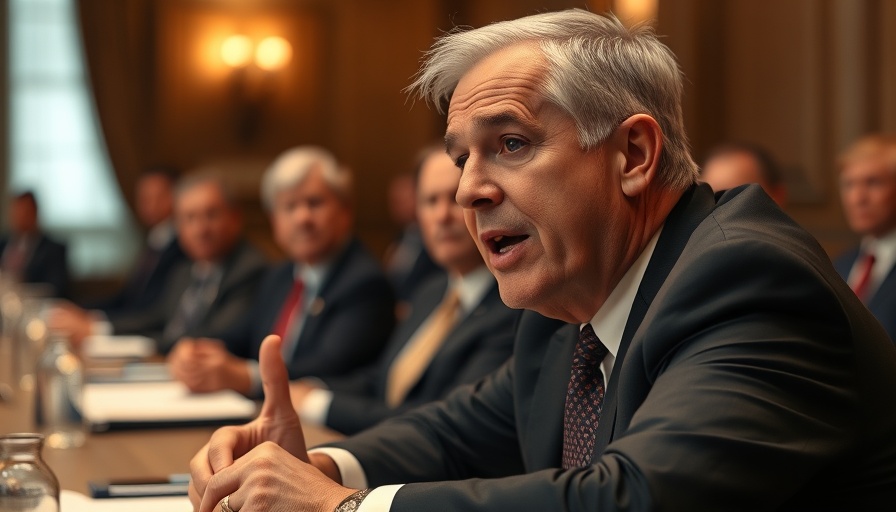
RFK Jr.'s Vaccine Panel: A Controversial New Direction
Robert F. Kennedy Jr. (RFK Jr.), a known vaccine skeptic, has taken a bold step as he has recently formed a new vaccine advisory panel aimed at reviewing long-approved vaccines for children and teens. This decision, made under his direction as the US Health Secretary, has elicited a mixture of support and concern from various public health experts and political figures. The new committee known as the Advisory Committee on Immunization Practices (ACIP) consists of seven members, many of whom have publicly expressed skepticism towards vaccines.
The Risk of Revisiting Established Vaccines
During their first meeting, the ACIP's new chair, Dr. Martin Kulldorff, made headlines by revealing that he lost his position at Harvard University over his refusal to receive the Covid-19 vaccine. This appointment is just one of many factors that raise red flags among public health officials. Their task now includes reviewing extensive vaccination schedules, including vaccines like Hepatitis B, which has been proven effective at preventing life-threatening liver infections in newborns.
Bill Hanage, a Harvard epidemiology professor, has voiced his concern regarding the decision to reassess vaccines approved over seven years ago, implying that it could indicate significant flaws in the approval process. Evaluating established vaccines raises questions about their safety and efficacy unnecessarily. As Hanage argues, there is no substantial rationale for reviewing vaccines that have a long-standing track record.
Examining Vaccine Standards and Guidelines
A significant point of contention in the upcoming meetings is the discussion surrounding thimerosal, a mercury-based preservative that has not been utilized in vaccines for years. This likely reflection on thimerosal may not only mislead current discussions about vaccine safety but also stir public fears unwarrantedly. The scheduled presentation by Lyn Redwood, a former leader of the anti-vaccine group Children’s Health Defense, further complicates the narrative. Previously, ACIP’s members had a diverse range of expertise that facilitated thoughtful scrutiny of vaccine recommendations; the current appointments convey a shift away from scientifically grounded practices.
Public Trust: The Core of Vaccination Efforts
The composition of the new ACIP has raised alarm bells among public health experts, who stress the importance of ensuring public trust in vaccination efforts, especially as misinformation continues to infiltrate discussions around vaccine safety. Trust is foundational to public health. If parents start to second-guess established immunization schedules due to potential biases or flawed analysis by the advisory board, children’s health could be jeopardized.
Moreover, the implications of this review could extend beyond individual vaccinations. In light of ongoing discussions on childhood vaccination, the broader impact on public health policies and childhood immunization rates may be profound. Parents, particularly those in the 30-65 age demographic, must stay informed on these developments as they directly affect their children's health.
Future Predictions: Implications on Vaccination Policies
The future of public health vaccination policies hinges upon the new ACIP's decisions and recommendations. With examinations of foundational vaccines looming, we can anticipate a rigorous debate over the criteria for vaccine approval and use; however, such discussions must be grounded in scientific evidence and unbiased inquiry.
As policymakers weigh these recommendations, citizens are encouraged to actively engage with reliable sources of information and demand transparency in the processes shaping our healthcare decisions. Remaining vigilant can usher in an era of improved public health guidance and safeguard the health of communities across the nation.
Conclusion: Staying Informed in the Changing Vaccine Landscape
In conclusion, the direction taken by RFK Jr.'s new vaccine panel could pose serious ramifications regarding public health initiatives moving forward. Working men and women aged 30 to 65 should keep abreast of these developments to empower their decisions regarding vaccinations. Knowledge is paramount in an era where both misinformation and scientific evidence vie for attention, shaping our societal norms and public health directives.
Stay engaged with global news updates and world headlines now by following trusted news sources for the latest coverage on vaccination policies and health advisory information.
 Add Row
Add Row  Add
Add 




Write A Comment